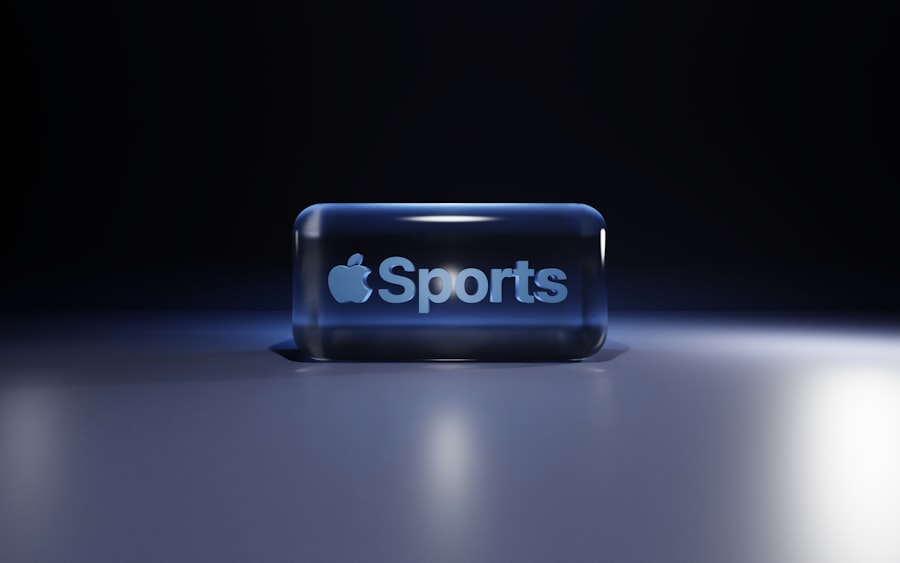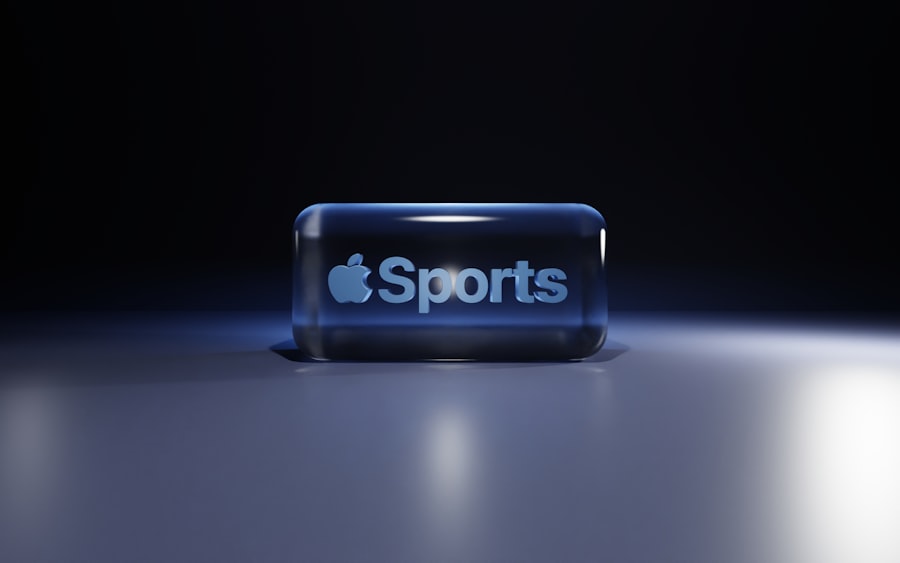The landscape of professional sports is complex and multifaceted, and at the heart of this ecosystem lies the sports agency. A sports agency serves as a crucial intermediary between athletes and the various stakeholders in the sports industry, including teams, sponsors, and media outlets. The primary role of a sports agency is to represent athletes in contract negotiations, ensuring that they receive fair compensation for their talents and efforts.
This involves not only negotiating salaries but also securing endorsement deals, managing public relations, and providing career guidance. The agency acts as a buffer, allowing athletes to focus on their performance while navigating the often tumultuous waters of professional sports. Moreover, sports agencies play a pivotal role in career management.
They help athletes build their personal brands, which can significantly impact their marketability and longevity in the sport. This includes advising on social media presence, public appearances, and community engagement. A well-rounded agency will also provide support in areas such as financial planning and legal advice, ensuring that athletes are not only successful on the field but also secure off it.
The relationship between an athlete and their agency is built on trust and mutual understanding, as both parties work towards common goals.
Key Takeaways
- Sports agencies play a crucial role in managing athletes’ careers and contracts.
- Thorough research and evaluation of agencies’ reputations are essential before choosing one.
- Meeting with potential agents helps assess compatibility and professionalism.
- Negotiating clear terms and understanding offered services ensures mutual benefits.
- Building a strong, communicative relationship with your agency supports long-term success.
Researching and Identifying Potential Agencies
The first step in finding the right sports agency is conducting thorough research to identify potential candidates. This process begins with understanding the specific needs of the athlete, including their sport, career stage, and personal goals. Different agencies specialize in various sports or have different strengths; for instance, some may excel in negotiating contracts for football players while others might have a strong track record in basketball or soccer.
Athletes should compile a list of agencies that align with their specific requirements and aspirations. Once a preliminary list is established, athletes should delve deeper into each agency’s background. This includes examining their client roster, which can provide insight into the agency’s expertise and reputation within the industry.
An agency that represents high-profile athletes may have more leverage in negotiations due to their established relationships with teams and sponsors. Additionally, researching online reviews, testimonials from current or former clients, and industry rankings can offer valuable perspectives on an agency’s performance and reliability. Engaging with fellow athletes or industry insiders can also yield recommendations and warnings about specific agencies.
Evaluating the Reputation and Track Record of Agencies

After identifying potential agencies, the next step is to evaluate their reputation and track record. An agency’s history can be indicative of its ability to deliver results for its clients. Athletes should look for agencies that have successfully negotiated lucrative contracts for their clients or secured high-profile endorsement deals.
This information can often be found through press releases, news articles, or industry publications that highlight significant achievements within the sports world. Furthermore, it is essential to consider the longevity of the agency in the industry. Established agencies with a long history may have developed strong relationships with teams and sponsors, which can be advantageous during negotiations.
However, newer agencies may bring fresh perspectives and innovative strategies that could benefit an athlete’s career. Evaluating an agency’s client retention rate is also crucial; agencies that maintain long-term relationships with their clients often demonstrate a commitment to their athletes’ success. Engaging in conversations with current clients can provide firsthand insights into an agency’s effectiveness and approach to representation.
Meeting with Potential Agents and Agencies
| Metric | Description | Value | Unit |
|---|---|---|---|
| Number of Meetings | Total meetings held with potential agents and agencies | 12 | Meetings |
| Average Meeting Duration | Average length of each meeting | 45 | Minutes |
| Follow-up Rate | Percentage of meetings that resulted in follow-up actions | 75 | % |
| Conversion Rate | Percentage of meetings that led to signed agreements | 33 | % |
| Average Number of Agents per Agency | Average count of agents represented by each agency met | 8 | Agents |
| Geographic Coverage | Regions covered by the agencies met | North America, Europe, Asia | Regions |
| Budget Range Discussed | Typical budget range for agency services discussed | 10,000 – 50,000 | Units |
Once a shortlist of potential agencies has been created based on reputation and track record, it is time to meet with them. These meetings are critical for establishing rapport and assessing whether an agency aligns with an athlete’s values and goals. During these discussions, athletes should come prepared with questions that address their specific concerns and aspirations.
Topics may include the agency’s approach to contract negotiations, how they handle endorsements, and what support they provide in terms of career development. In addition to asking questions, athletes should pay attention to how agents communicate and present themselves during these meetings. A good agent should demonstrate not only knowledge of the industry but also a genuine interest in the athlete’s career and personal goals.
The chemistry between an athlete and their agent is vital; a strong working relationship can lead to better outcomes in negotiations and overall career management. Athletes should trust their instincts during these meetings—if something feels off or if there is a lack of transparency, it may be a red flag.
Negotiating Terms and Contracts with Sports Agencies
Negotiating terms with a sports agency is a critical step that can significantly impact an athlete’s career trajectory. Once an athlete has selected an agency, discussions about fees, services provided, and contract terms must take place. Typically, sports agencies charge a percentage of an athlete’s earnings—commonly ranging from 5% to 10%—but this can vary based on the agency’s reputation and the level of service offered.
Athletes should ensure they fully understand what services are included in this fee structure. Additionally, it is essential to negotiate terms that reflect the athlete’s unique needs. For instance, if an athlete requires more extensive marketing support or career planning services, they may want to negotiate a higher percentage fee in exchange for these additional services.
Transparency is key during this process; both parties should feel comfortable discussing expectations and responsibilities openly. Athletes should also consider seeking legal advice before signing any contracts to ensure that their interests are adequately protected.
Considering the Services and Resources Offered by Agencies

When selecting a sports agency, it is crucial to evaluate the range of services and resources they offer beyond contract negotiation. A comprehensive agency will provide a suite of services designed to support an athlete’s career holistically. This may include marketing and branding assistance, financial planning services, legal support, and even mental health resources.
The best agencies recognize that an athlete’s success extends beyond the playing field; they aim to cultivate well-rounded individuals who can thrive both professionally and personally. For example, some agencies have dedicated teams focused on brand development that help athletes create a strong public persona through social media management and public relations strategies. Others may offer financial advisors who specialize in managing athletes’ wealth, ensuring they make sound investments for long-term security.
Additionally, agencies that prioritize mental health resources can provide access to sports psychologists or counselors who understand the unique pressures faced by professional athletes. By considering these factors, athletes can choose an agency that aligns with their broader career goals.
Making a Decision and Committing to an Agency
After thorough research, evaluations, meetings, and negotiations, the time comes for an athlete to make a decision regarding which sports agency to commit to. This choice should not be taken lightly; it represents a significant partnership that can influence an athlete’s career trajectory for years to come. Athletes should reflect on all aspects of their interactions with potential agencies—their reputation, services offered, communication style, and overall fit with personal values.
Once an athlete has made their choice, it is essential to communicate this decision clearly to the selected agency while also formally notifying any other agencies they may have been considering. This professional courtesy helps maintain positive relationships within the industry. After committing to an agency, athletes should take proactive steps to establish clear lines of communication with their new representatives.
Setting expectations early on regarding communication frequency and preferred methods can help foster a productive working relationship moving forward.
Building a Successful Relationship with Your Sports Agency
The relationship between an athlete and their sports agency is ongoing and requires active engagement from both parties to be successful. Athletes should view their agents as partners in their careers rather than just representatives handling contracts. Regular communication is vital; athletes should keep their agents informed about any changes in their personal or professional lives that could impact their careers or marketing opportunities.
Additionally, athletes should be open to feedback from their agents regarding performance improvements or brand development strategies. A successful partnership involves collaboration; both parties must work together towards shared goals while respecting each other’s expertise. By fostering a strong relationship built on trust and mutual respect, athletes can maximize the benefits of their representation while navigating the complexities of professional sports effectively.
In conclusion, navigating the world of sports agencies requires careful consideration at every step—from understanding the role of an agency to building a successful long-term relationship with one’s chosen representative. By taking the time to research potential agencies thoroughly, evaluating their reputations, meeting with agents directly, negotiating terms effectively, considering available services, making informed decisions, and nurturing ongoing relationships, athletes can position themselves for success both on and off the field.



